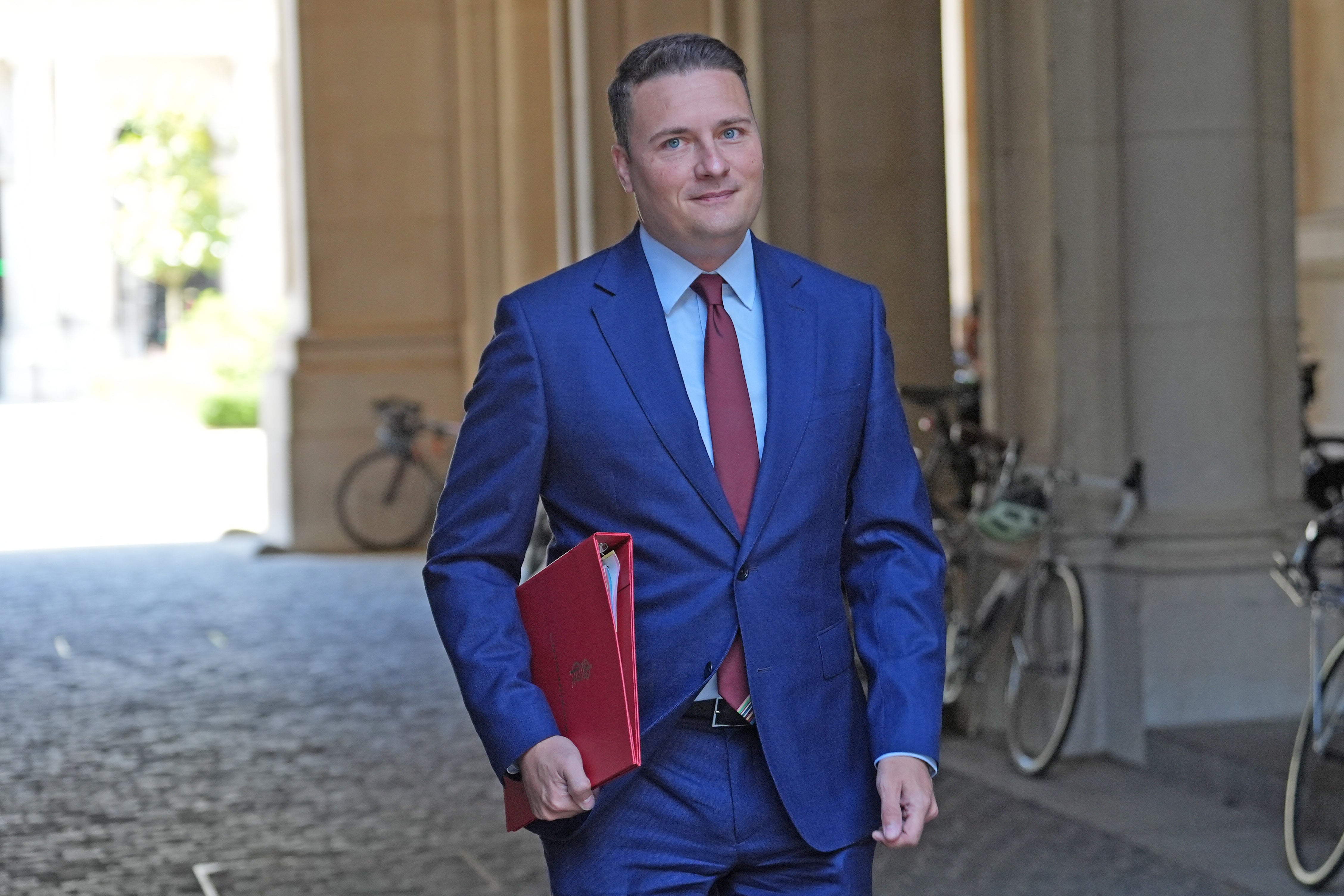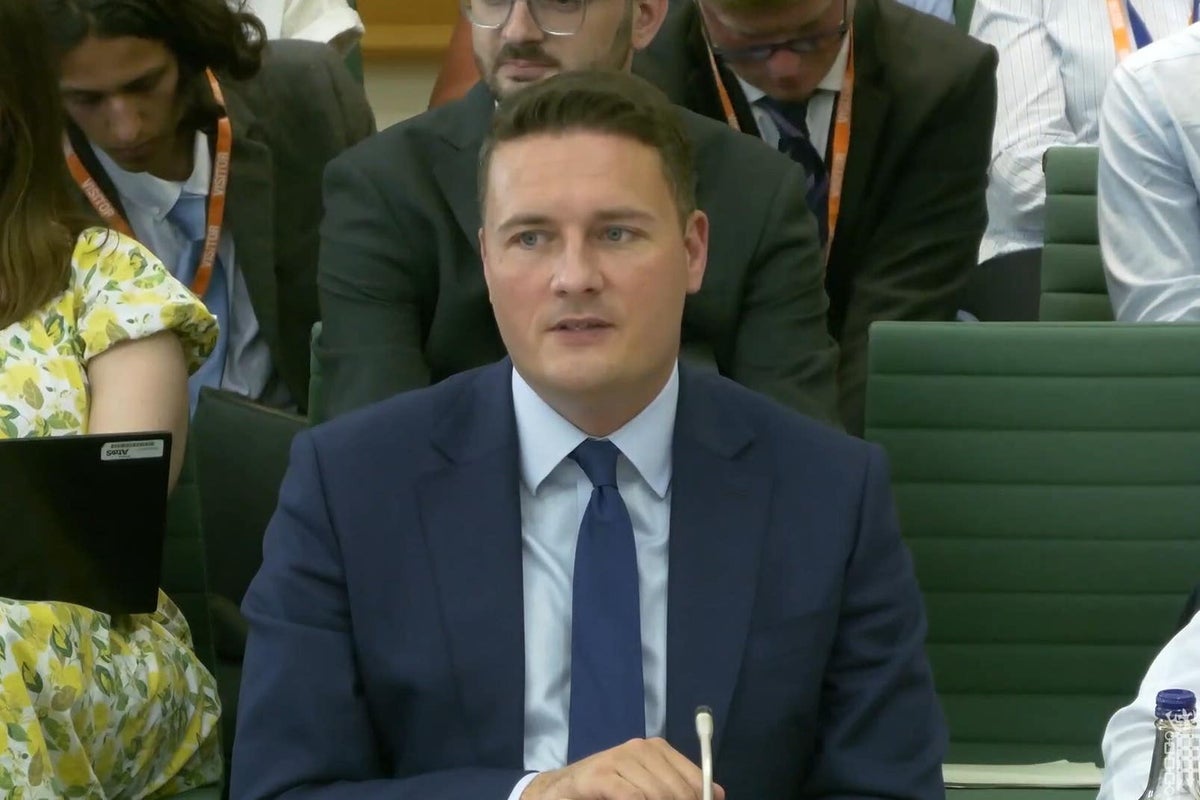Wes Streeting has accused the British Medical Association (BMA) of acting in an “unconscionable” way after the union told junior doctors they do not need to inform their employers if they are planning to strike next week.
The health secretary described the advice as “shockingly irresponsible”, adding that he “cannot fathom” why any doctor would make it more difficult for managers to “make sure we have safe staffing levels”.
Resident doctors in England, as junior doctors are now known, are set to strike for five days from 7am on 25 July as part of a pay dispute with the government.
Leading doctors have warned that the “highly dangerous” industrial action risks harming the public’s trust in the profession.
But the new leader of the BMA has said that the doctors’ 29 per cent pay demand is “non-negotiable” and that strikes could go on for years.
On Monday, the union said strikes will still go ahead even if a health warning is issued over rising temperatures next week.
Senior BMA leaders posted messages on social media over the weekend to tell doctors they do not have to alert their NHS trust if they are planning to strike, sparking fears over patient safety. On X (Twitter), Dr Ross Nieuwoudt, co-leader of the BMA’s resident doctors committee, wrote: “You do NOT have a legal responsibility to disclose whether you are striking.”
Mr Streeting told MPs: “Their leaders seem to be telling their members not to inform their trusts or their employers if they’re going out on strike.
“Now, I might not agree with the BMA strike action, but I do accept they have a right to strike … what I cannot fathom is how any doctor in good conscience would make it harder for managers to make sure we have safe staffing levels.”
Failing to inform hospitals would also “make it harder for other staff who are going to be turning up to work that day … many of whom are paid less than resident doctors”.
He said that the BMA’s approach “from start to finish has been completely wrong”.
The “idea that doctors would go on strike without informing their employer … I think is unconscionable”, he said, as he urged resident doctors to “do the right thing”.
The health secretary is due to meet with the BMA this week in hopes of averting the strikes.

He told the committee, “There is no more room for manoeuvre on pay,” but said there are other things the government can and should do to improve working conditions.
However, he added: “These things are always choices and trade-offs, lots of things resident doctors are asking for in terms of doctor unemployment, or progression into speciality posts, both of which I agree with them on, cost money.
“Many of the other things we want to do in the NHS cost money, and that’s why, having received a 28.9 pay increase, it is not only unreasonable and unnecessary, it is also self defeating, because it will come at a cost at the things we want to invest in to improve the NHS … I think it would be a catastrophic mistake to throw it all out by going on strike.”
When asked about the impact of strikes, he said the impact could be “mitigated” but that he could not promise there would be no consequences or delays for patients.
He said: “I have a relative in that position. My family are currently dreading what I fear is an inevitable phone call saying that there is going to be a delay to this procedure, and I just think this is an unconscionable thing to do to the public, not least given the 28.9 per cent pay rise.”

Sir Jim Mackey, chief executive for NHS England, also warned of the disruption to patients.
He told the committee: “I lived through this as a trust chief executive. I reiterate what the secretary of state said, everybody respects the right to strike, but this is hugely disruptive, much more than we’ve been able to describe … So we hope this is avoidable, but we can’t allow it to play out like it did last time.”
Sir Jim also warned that beyond NHS waiting lists, there will be disruption to other services, which “we must avoid at all costs”.
The BMA was approached for comment.


